Highlights of the Week: 5 Big Events in Croatia from May 3-9, 2021
May 7, 2021 - TCN's regular retrospect of Highlights of the week, through the selection of TCN's reporter Ivor Kruljac.
President Milanović loved by locals in Plaški. Firefighters quickly reacted to the fire in Zagreb recycle yard. Pula celebrated its liberation while Šibenik received new doses of coronavirus vaccines. Dinamo and Hajduk end their match in a tie. Overall another interesting week in Croatia, and here are more details on all highlights.
Highlights of the week: President Milanović loved in Plaški county
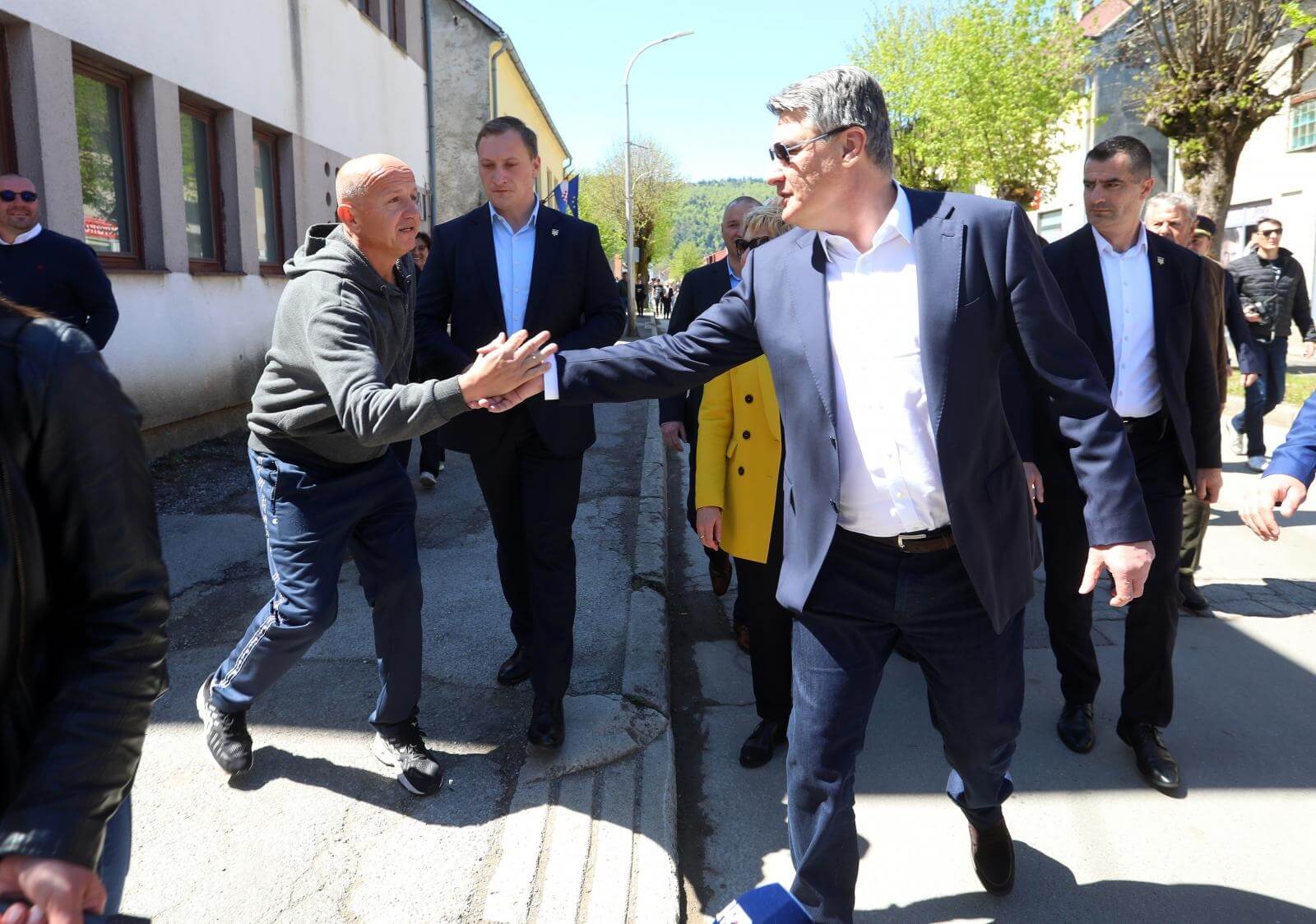
© Kristina Stedul Fabac/ PIXSELL
Croatian president Zoran Milanović visited Plaški county near Ogulin on Tuesday to visit the newly-build Firefighter's home and Plaški Culture Home. The locals welcomed president Milanović with ovations, and many use the opportunity to handshake and take a photo with the president. As Večernji List reports, Milanović took the visit as an opportunity to comment on the hate speech incident at Borovo Selo. He stated that the President of Serbian National Council Milorad Pupovac and Croatian Prime Minister „should use the police, but they don't, they are causing incidents.
Highlights of the Week: Pula celebrating its liberation in WW2
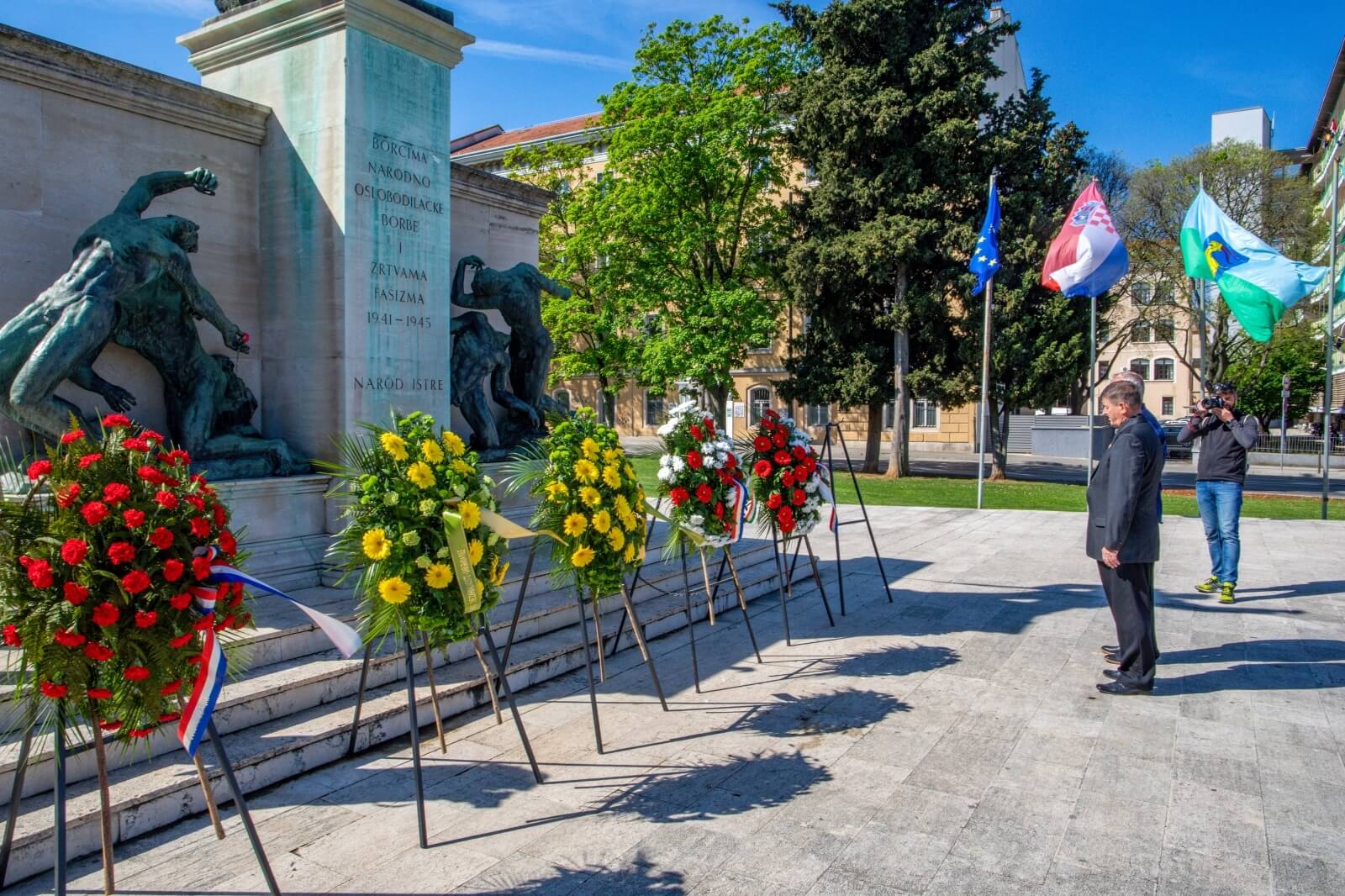
© Srecko Niketic/ PIXSELL
Pula celebrated its annual liberation day and the Pula City Day, marked on May 5. In Tito's park, the traditional commemoration to the fallen WW2 soldiers of Tito's partisan army saw Tiziano Sošić (president of Pula City Council), Elena Puh Belci (vice mayor of Pula), Aleksandar Matić (chief of the City of Pula Office) and Fabrizio Radin (vice-county ruler of Istria county) paid their respects. Representatives of associations of anti-fascist fighters and anti-fascist of the city of Pula were present too.
Highlights of the Week: Dinamo and Hajduk end with an even score 1:1
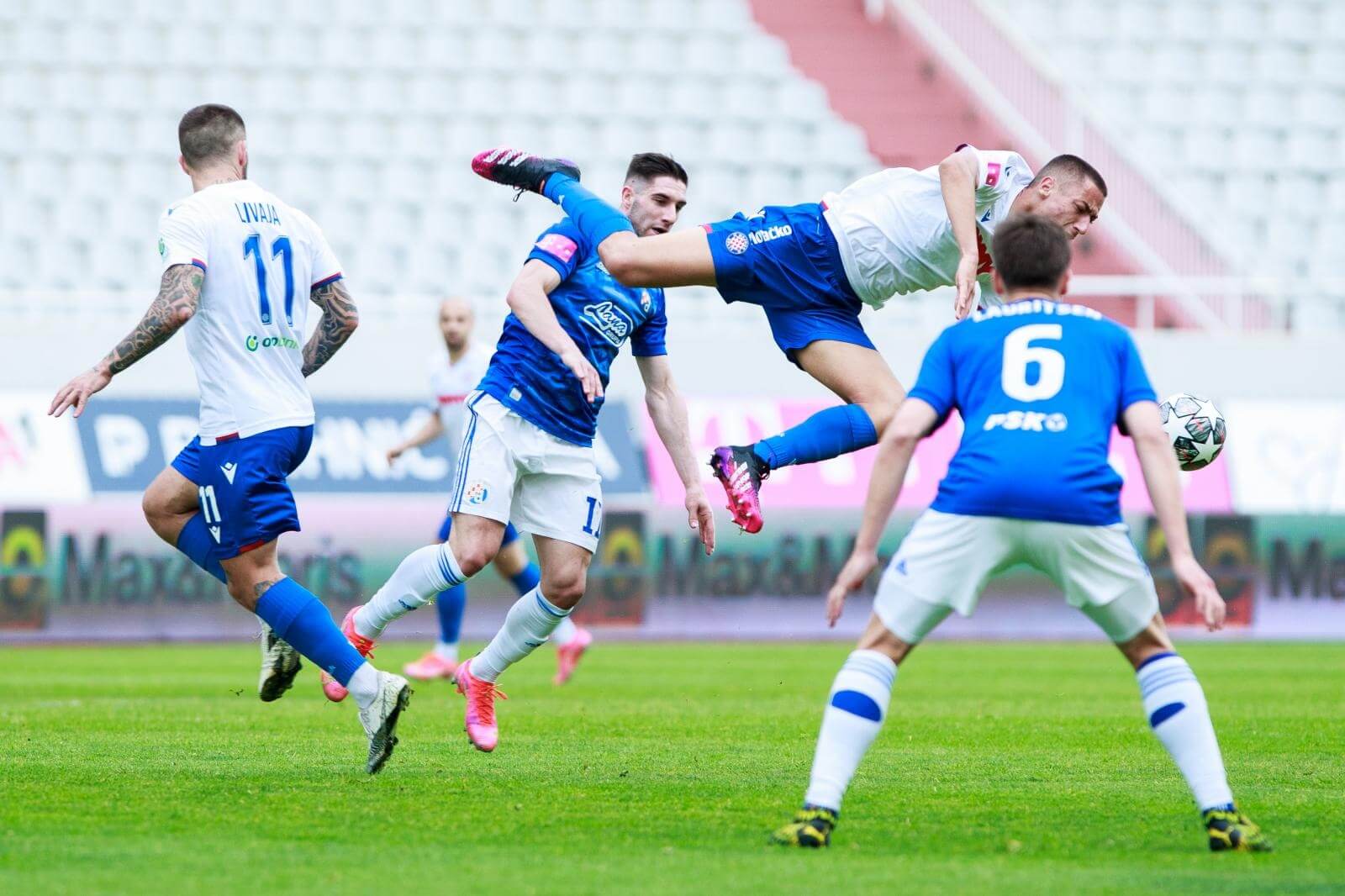
© Milan Sabic/ PIXSELL
Hajduk and Dinamo's eternal opponents played another game at Hajduk's home of Poljud Stadium in Split on Wednesday. The match was the 22nd round in Croatian First League, and fans couldn't wait for it as the game was postponed.
Hajduk opened the match well and had a chance to take the lead in the first 20 seconds. Kačaniklić received an excellent long ball and ran on the right side. He rushed into the penalty area and shot diagonally, but Livaković came out and closed his corner. Dinamo improved and took the lead in the 16th minute with a goal by Majer, and Livaja returned the favor in the 44th minute. Diamantakos hit the crossbar in the final minutes of the match but without success.
After three victories in the previous three clashes with Hajduk this season, Dinamo failed to achieve maximum performance and almost mathematically secured the title but entered the last four rounds with a seven-point advantage over Osijek. The fail happened despite Dinamo facing Hajduk with the strongest possible lineup.
Highlights of the Week: Vaccination in Šibenik continues successfully
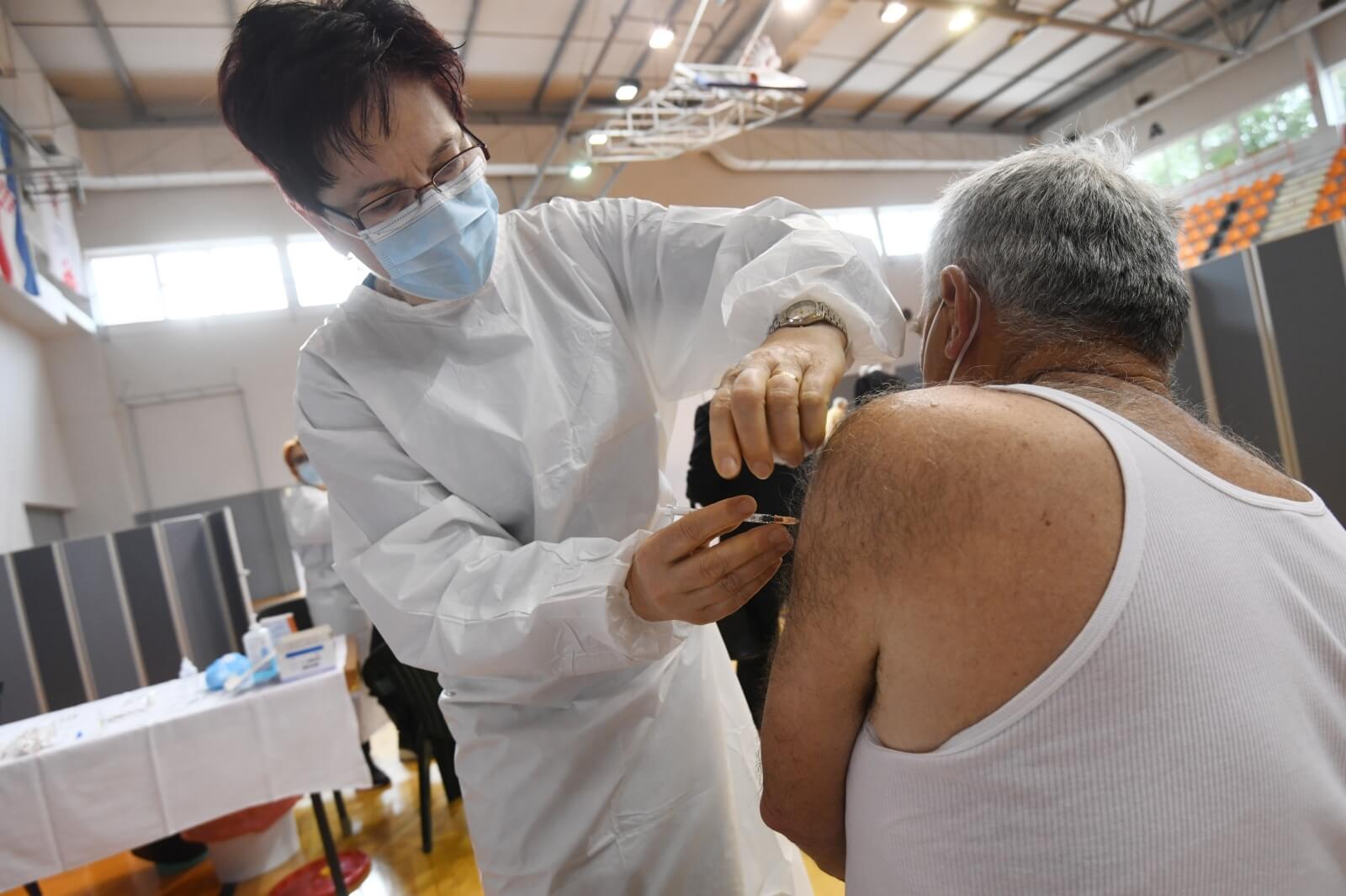
© Hrvoje Jelavic/ PIXSELL
Larger quantities of vaccines came to Šibenik on Friday, allowing vaccination in Baldeki Sports Hall to go without problems for the second day in the row. The vaccination attracts a number of citizens, so the area got quite crowded.
Highlights of the Week: Recycling yard in Zagreb on fire, reasons unclear
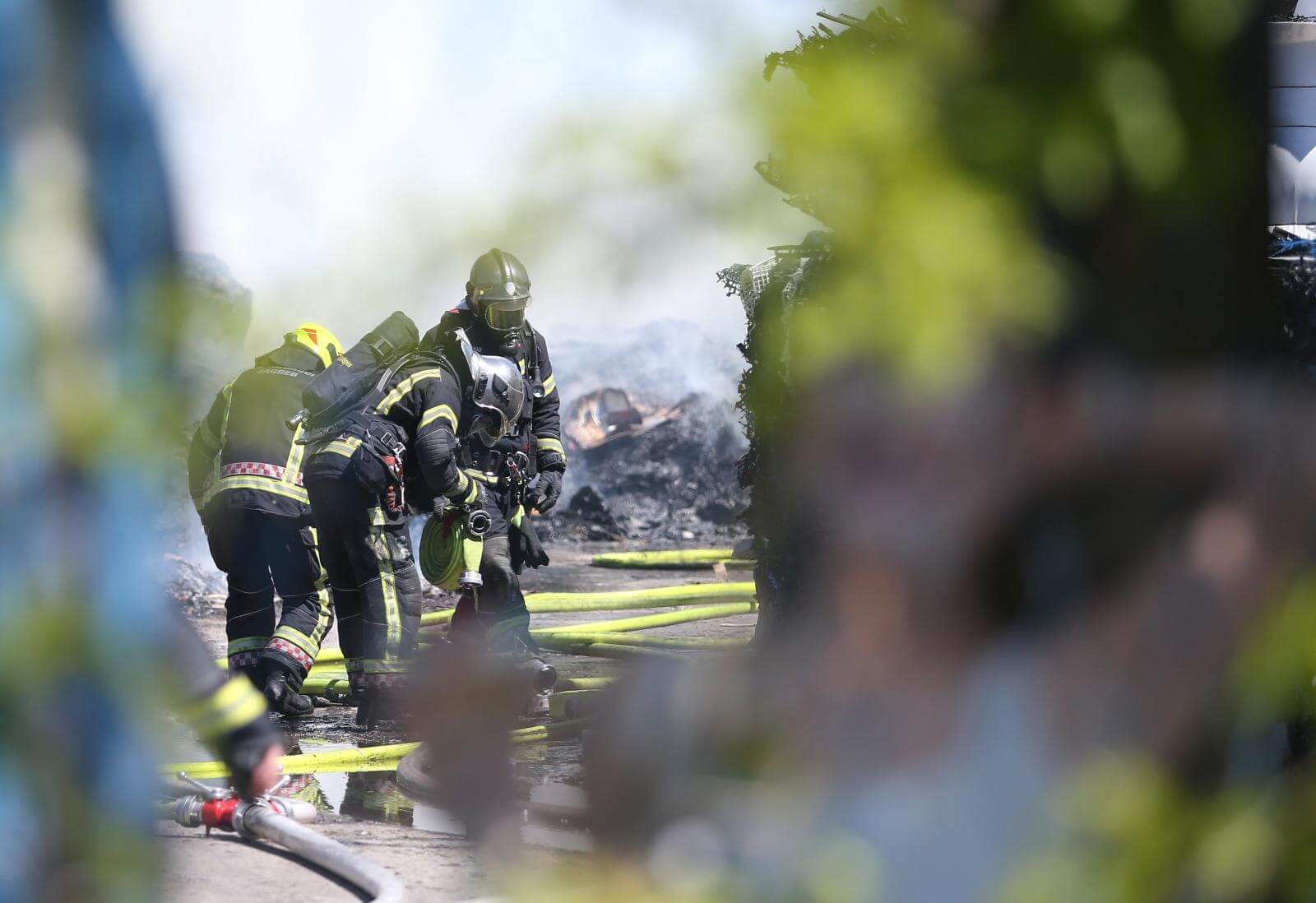
© Matija Habljak/ PIXSELL
Zagreb's recycling yard, located on Sarajevska Cesta in Novi Zagreb, was victimized by fire but quickly localized and put under control on Tuesday. The fire caught four containers, and 21 firefighters with six fire trucks rushed to the field. Police investigated the cause of the fire, but the reason is, for the moment, unknown. Firefighters managed to operate despite the lack of hydrants, and the thick white smoke was noticed by citizens who live in the buildings close to the yard, reported Večernji List.
To learn more about Croatia, have a look at our newly launched TC website.
For more about news in Croatia, follow TCN's dedicated page.
Grant Agreement Signed For Composting Plant in Metković
ZAGREB, 26 March, 2021 - A HRK 12.5 million EU grant agreement for the construction of a composting plant in the southern town of Metković was signed on Friday by Economy and Sustainable Development Minister Tomislav Ćorić and the director of the local Čistoća waste management company, Tomislav Jakić.
The project, which will be implemented as part of the Operational Programme Competitiveness and Cohesion 2014-2020, is worth more than HRK 24 million, of which 50% is co-financed by the EU.
Ćorić said that the composting plant would serve Metković as well as Opuzen and neighbouring communities.
The plant's annual capacity is 5,000 tonnes and it guarantees that biodegradable waste in the River Neretva valley will be managed in the best way possible, said the minister.
Dubrovnik-Neretva County head Nikola Dobroslavić said that Metković was the most advanced local government unit in terms of waste management.
For more about ecology in Croatia, follow TCN's dedicated page.
Eurostat: Croatia is EU Leader in Disposal of One Type of Hazardous Waste
As Darko Bicak/Poslovni Dnevnik writes on the 3rd of August, 2020, although in Croatia we often complain that we lag considerably far behind most other European Union member states in terms of waste management, the latest data from the EU statistical office Eurostat shows that Croatia is in actual fact the absolute leader in terms of the disposal of batteries and accumulators.
According to Eurostat, in the last three years alone, the Republic of Croatia has collected as much as 96% of all of its sold batteries and accumulators for recycling. The EU average in this regard is a mere 48%, and when it comes to other countries, Poland is behind Croatia with 81%, Luxembourg with 69% and Belgium with 62%. At the back of the line, with less than 40% of the collected waste of this type, lie Spain, Italy, Marla, Slovenia, Greece, and Portugal and at the very end are Cyprus and Estonia with a mark of just 30%. The market for batteries and accumulators across the EU is relatively stable and in 2010 it amounted to 176,000 tonnes, and by 2013, the year Croatia joined the bloc, it dropped to 169,000 tonnes and in 2018 it climbed back up to 191,000 tonnes.
In contrast, there is a significant increase in the amount of collected waste of this type, going from 55,000 tonnes in 2010 to a much higher 88,000 tonnes a couple of years ago in 2018. This means that the share of collected and later disposed of waste batteries and accumulators rose from 35 percent in 2010 to 48 percent in 2018, which is the last processed set of figures in this statistic.
Croatia has a relatively well-organised system for collecting this type of special waste, which takes place through seven companies registered with the Fund for Environmental Protection and Energy Efficiency (EPEEF). The biggest player here is certainly the Zagreb-based CIAK, followed by Flora VTC from Virovitica, Friš from Križevci, Metis (Cios group) from Kukuljanovo, OS from Zadar, STR akumulator from Đurđevac and Univerzal from Varaždin. The Fund points out that the system of collecting and recovering batteries and accumulators across Croatia was established back in 2007.
“A legal or natural person who places batteries or accumulators on the Croatian market of the EPEEF pays a certain fee which is used for the organisation of the entire system of the collection and disposal of this type of waste. The goal is to reduce the negative impact on the environment with such a systematic approach,'' they say from the Fund. They explain that in other management systems of special categories of waste, Croatia records very good results and has high collection rates. This sector will gain even more importance in the coming period due to the rapid development of electric vehicles, for which, in turn, the battery is a key component. According to the International Renewable Energy Agency, there are six million electric vehicles in the world today, and it is projected that this number will rise to 50 million by the year 2030. The value of this new market is estimated at around 250 billion euros by 2025 at the EU level, while the market for all other batteries will reach barely 10 billion euros by 2027.
As pointed out by the director of the Sector for Energy and Environmental Protection of the Croatian Chamber of Commerce (HGK), Marija Šćulac Domac, the key niche is electric cars and lithium-ion batteries, which are expected to grow by 8 to 9 percent annually. Currently, the demand for batteries is high. Panasonic is meeting the Japanese demand, Samsung is meeting the Korean demand, and Europe needs to find its own source. Sweden's Northvolt is the only large European manufacturer with a large factory in Poland, and France and Germany are launching an initiative to research and develop batteries for electric vehicles with an investment of between five and six billion euros.
The Zagreb company Munja is, at least as far as is known, the only Croatian manufacturer of accumulators and batteries. Zagreb's CIAK is also a significant player in the market, but it is primarily a general importer, agent and distributor for Croatia when it comes to many global battery brands such as Varta, Optima, Trojan, Faam, Miac, Leoch and others. They also have their own CIAK brand, but they don't have, at least as far as is known, production in the Republic of Croatia, and their CIAK Starter batteries arrived from the Johnson Controls factory (Varta, Optima) located in the Czech Republic.
Here in Croatia, there are other companies involved in the sector, including Grom from Velika Gorica and the aforementioned Friš that have their own brands of batteries and accumulators, but which also probably have supplies from manufacturers from abroad.
For more, follow our lifestyle page.
Environment First: Knin To Get Recycling Yard
A 2.2 million kuna project to benefit the environment in and around Knin.
Municipal Waste in Croatia: Which Cities are Best at Recycling?
The highest rates of municipal waste recovery are in Međimurje and Zagreb County, while the least is in Lika-Senj and Split-Dalmatia County.


